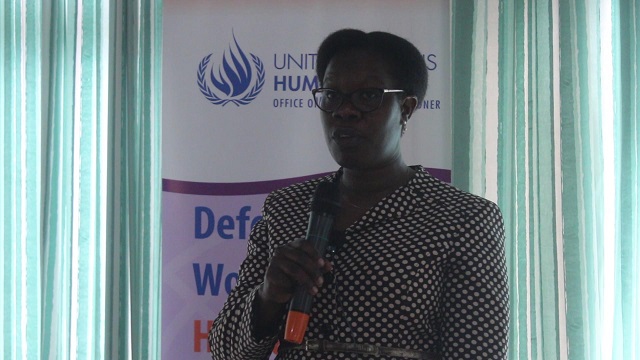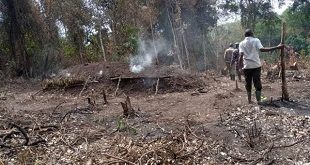
Kampala, Uganda | THE INDEPENDENT | The Inspectorate of Government has resorted to enrolling civil society organisations to help in the fight against corruption in government-sponsored projects for refugees.
This is part of government efforts to improve service delivery, but will also help improve its image tainted by reports of graft in various forms including diversion of funds by officials, inflating refugee numbers among others.
The community-based CSOs are charged with monitoring programs, detecting and preventing corruption as well as handling conflicts where possible, among others, in and around the refugee settlements in their areas of operation.
The IG has entered a Memorandum of Understanding with the nine groups, including Community Development Network, Karambi Action for Life Improvement, Kitgum NGO Forum, Koboko Civil Society Network and Moyo NGO Forum.
The NGOs are implementing the ‘Community Responsibility to Enhance Transparency and Accountability’ programs in the Development Response to Displacement Impact Project (DRDIP) in the refugee-hosting communities.
James Penywii, the Director Project Risk, Monitoring and Control at the IG says the CSOs will be charged with training of community monitoring groups in matters to do with corruption detection and reporting, but also act as a rapid response team in case of an incident.
Other CSOs are Rwenzori Anti-Corruption Coalition, Recreation for Development and Peace, Western Ankole Civil Society Forum and West Nile Regional Civil Society.
The DRDIP project is operating in 15 districts of Adjumani, Arua, Hoima, Isingiro, Kamwenge, Kikuube, Kiryandongo, Koboko, Kyegegwa, Lamwo, Madi-Okollo, Moyo, Obongi, Yumbe and Terego, which are the main hosts of refugees in the country.
Recent prominent corruption cases include one where two officials, Robert Baryamwesiga and Fred Kiwanuka, were in Bidi-bidi camp in Yumbe were arrested and charged with receiving bribes worth 393 million shillings in a tendering process, between 2016 and 2017.
And in 2018, an inquiry by the Office of the Prime Minister and the UN refugee agency, UNHCR, found that the number of refugees had been inflated by about 300,000, so that allegedly the officials implicated could get more money that what was due for personal use.
Three Ugandan officials were suspended. But there are also lower level incidents that happen in the local settings not widely reported, hence this approach by the government and the World Bank which is aimed more at preventing an incident before it occurs, according to Deputy IGG Patricia Achan Okiria.
However, the CSOs themselves are warned against practicing corruption, whether in internal operations or when dealing with refugees and other persons.
The Acting Secretary to the IG, Robert Bukenya told them to abide by the regulations, like prompt filing of monthly reports, accounting for all fun6ds before requesting for more as well as meeting other statutory requirements like NSSF deductions.
Bukenya also says some are fond of recruiting employees from other regions and yet the CSO is a community organisation, warning that they will continue penalizing such including suspending them.
The Deputy IGG, Dr. Achan Okiria says the government and others who are involved in the fight against corruption have to keep looking for new approach to stay on top of the game because of the nature of corruption.
Equating it with a pandemic, the Deputy IGG says corruption keeps changing form and it is hard to tell when it is happening and where, hence the need for all to be as vigilant as possible.
This is a 200 million dollars (720 billion shilling) project that government, through the Office of the Prime Minister is undertaking in the refugee-hosting districts. The purpose is to improve social service delivery and access, expand economic opportunities and enhance environmental management in the districts.
*****
URN
 The Independent Uganda: You get the Truth we Pay the Price
The Independent Uganda: You get the Truth we Pay the Price



